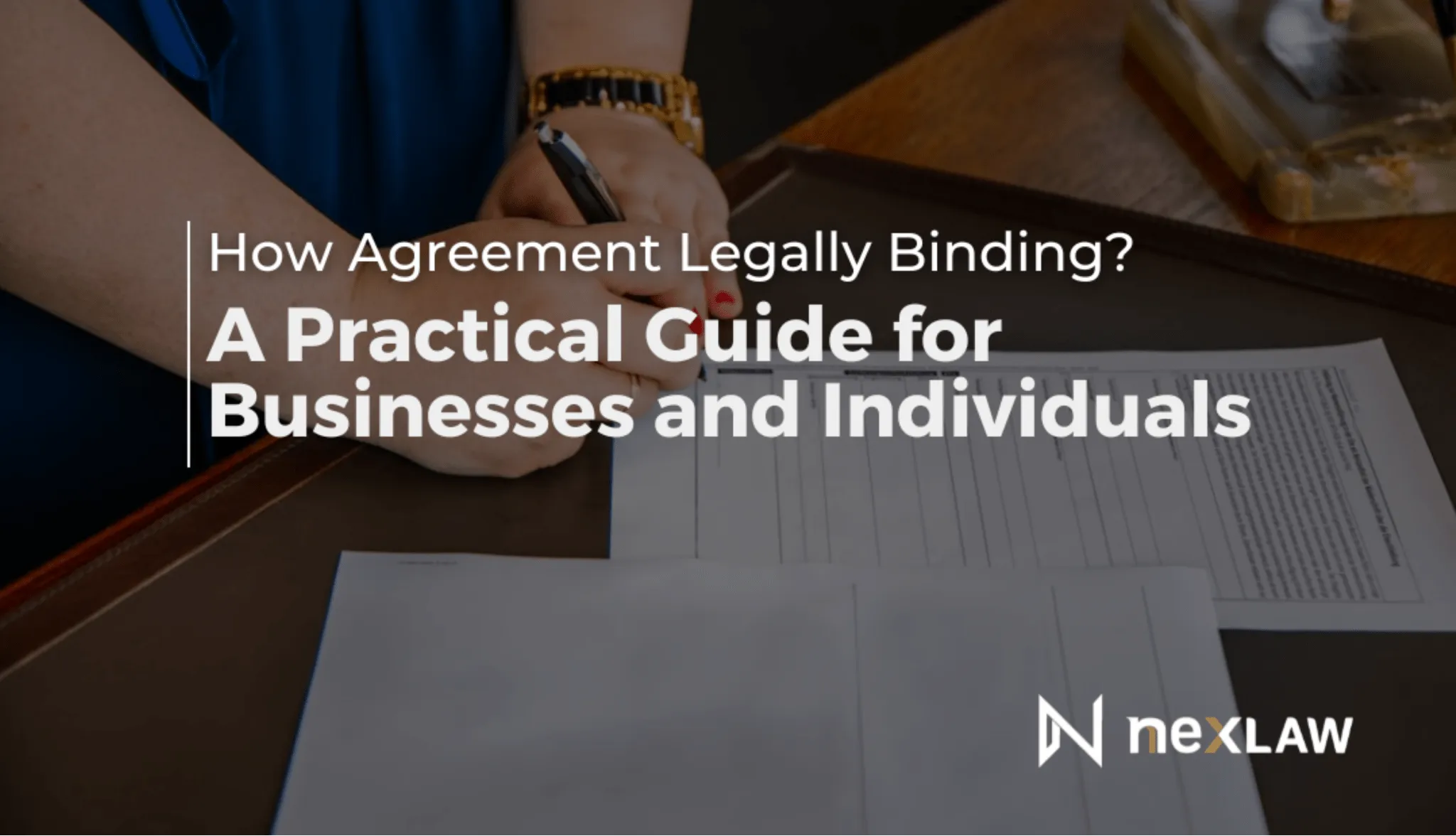Entering into contracts is a routine yet crucial part of business and personal dealings in Australia. But how do you know if your agreement is truly legally binding? Understanding the essential elements that make a contract enforceable can protect you from disputes, financial loss and legal complications. This comprehensive guide breaks down the key components of legally binding agreements under Australian law, offering clear advice to help you confidently create and manage contracts.
Unlock Legal Insights Instantly
What Makes an Agreement Legally Binding?
A legally binding contract in Australia is an agreement that the law recognizes as enforceable. When parties enter into such an agreement, they are obligated to fulfil their promises. Failure to comply can lead to legal consequences such as enforcement actions or claims for damages.
To be legally binding, an agreement must satisfy several fundamental criteria:
-
Offer An offer is the initial proposal made by one party to another, indicating a willingness to enter a contract for certain terms. It must be clear, definite, and communicated to the other party.
Example: A business offers to sell 100 units of a product at a specified price.
-
Acceptance Acceptance is the first step in forming a binding contract. It means that all parties agree to the terms offered. Acceptance can take various forms:
- Signing the Contract: The most common and straightforward method. Signing a document typically indicates clear acceptance of all terms, including electronic signatures, which are legally valid in Australia.
- Conduct: Actions that clearly indicate acceptance, such as starting work, making payment or taking possession of goods.
- Oral Agreement: Spoken words like “I accept” or “Deal” can constitute acceptance if the terms are clear.
- Click-to-Accept: Common in online agreements, such as software licenses or service terms, where clicking an “I agree” button signifies acceptance.
A key legal test is whether a reasonable third party would view the acceptance as genuine and unequivocal.
-
Consideration Consideration means each party must promise something of value in exchange for what they receive. This mutual exchange is fundamental to contract law.
- Example: When selling a house, the seller promises to transfer ownership, and the buyer promises to pay the agreed price.
- The law does not require the consideration to be equal or fair- even a nominal amount (like $1) can suffice, known as the peppercorn principle.
Use clear, definitive language in your agreement to avoid ambiguity, e.g., “Party A will deliver goods” rather than “Party A may deliver goods.”
-
Intention to create legal relations The parties must intend for the agreement to be legally binding. In commercial contexts, this intention is usually presumed. However, if unsure, consider the potential consequences of non-compliance:
- The greater the potential loss or risk, the more likely the parties intended to be legally bound.
- Social or domestic agreements typically lack this intention unless explicitly stated.
-
Clear For an agreement to be enforceable, all essential terms must be finalised and clear enough to hold the parties accountable.
- Essential terms include things like price, quantity, delivery dates, or description of goods/services.
- Vague or incomplete agreements may not be legally binding.
-
Consent For a contract to be valid, all parties must have the legal capacity to consent voluntarily. Australian law recognises certain groups may have limited capacity:
- Minors: Contracts are only binding if they benefit the minor.
- People with Mental Disabilities: Contracts are void if the person does not understand the agreement.
- Intoxicated Persons: They must repudiate the contract upon sobriety to avoid being bound.
- Bankrupt Individuals: They can enter contracts but should proceed cautiously.
Special Considerations When Contracting with Companies
Companies have the same legal capacity as individuals to enter contracts. A company contract is valid if signed by:
- The company’s common seal,
- An authorised representative
- A person acting with proper authority on the company’s behalf.
If you sign on behalf of a company, ensure you have the correct authority to avoid personal liability.
Verbal Agreements: Are They Legally Binding?
Verbal contracts are valid in Australia if they meet the same legal requirements as written contracts. However, they pose challenges:
- Proof Issues: Without written documentation, it can be difficult to prove the terms or existence of the agreement.
- Enforceability: Courts will enforce verbal contracts if evidence supports their formation and terms.
For significant transactions, written contracts are strongly recommended to minimise disputes.
Unfair Contract Terms: What Businesses Need to Know
Recent Australian law changes have tightened rules around unfair contract terms (UCTs), especially in standard form contracts used by businesses. From 9 November 2023:
- Unfair terms may be unenforceable.
- Businesses can face significant penalties for including unfair terms.
To comply:
- Ensure contracts are balanced and fair.
- Include only terms necessary to protect legitimate business interests.
- Avoid terms that cause unjust detriment to the other party.
Summary Table: Key Elements of a Legally Binding Contract in Australia
| Element | Description | Example/Notes |
|---|---|---|
| Offer | Initial clear, definite proposal communicated to another party | Business offers to sell 100 units at a specified price |
| Acceptance | Clear agreement by signing, conduct, oral acceptance or click-to-accept | Signing a contract, paying an invoice or clicking “I agree” |
| Consideration | Mutual promises of value exchanged between parties | Buyer pays money, seller transfers ownership |
| Intention to Create Legal Relations | Parties intend for the agreement to be legally enforceable | Presumed in business contracts |
| Clear | All essential terms must be finalised and clearly stated | Price, quantity, delivery date, product/service description |
| Consent | Parties must have the legal ability to enter a contract (not minors, intoxicated, etc.) | Minors bound only if contract benefits them |
Practical Tips for Businesses and Individuals
- Always use clear, definitive language in contracts to avoid ambiguity.
- Keep written records of agreements, even if contracts are verbal.
- Review contracts regularly to ensure terms remain fair and compliant with current laws.
- Seek legal advice for complex or high-value contracts.
- Be cautious when signing on behalf of a company to avoid personal liability.
- Watch for unfair contract terms and update standard form contracts accordingly.
Conclusion
To ensure your agreement is legally binding, it must include key elements like offer, acceptance, consideration, and clear terms. NexLaw helps you cover all these essentials by using AI to review and strengthen your contracts, so you don’t miss any important legal principles. With NexLaw, you can be confident your agreements are solid and enforceable.
Interested In Features Like This?

Receive complimentary access to our resources and a personalized live demo tailored to your needs.










